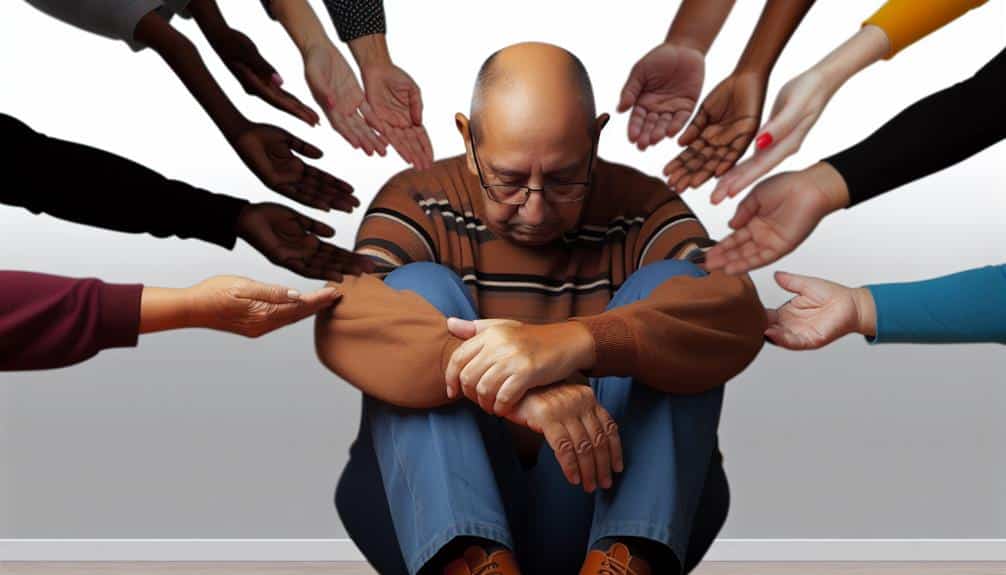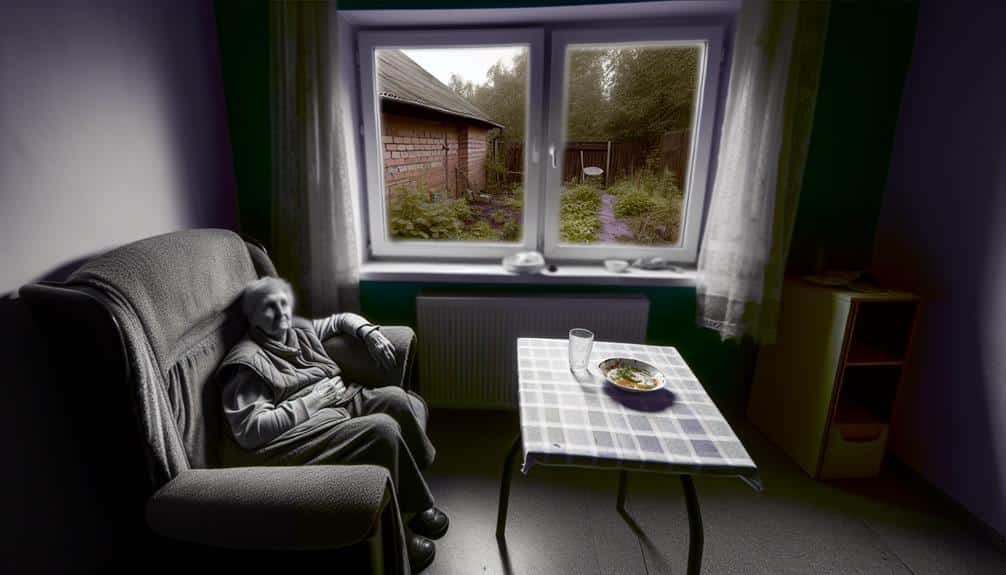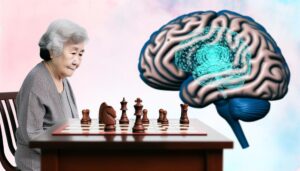Depression in older adults can often go unnoticed or be chalked up to “just aging,” but it’s far more than that. It’s a serious condition with profound effects on overall health and quality of life. You might wonder, are there ways to cope effectively? Absolutely. Strategies focusing on emotional well-being can help greatly. From exercise and diet to mindfulness and building a supportive network, there are various approaches that promise improvement. But how do they work, and what benefits can they offer? Let’s delve into this vital topic further.
Table of Contents
ToggleUnderstanding Depression in Older Adults

One might underestimate the prevalence of depression in older adults, but it’s a serious issue that demands our attention. As a caregiver or loved one, you can play a key role in identifying signs and facilitating treatment.
Depression in older adults often comes hand-in-hand with cognitive decline. You might notice a loved one often forgetting things, having trouble concentrating, or making decisions. This isn’t just a normal part of aging but often a sign of mental distress.
Another red flag is social isolation. An older adult who’s depressed might prefer to stay alone, withdraw from activities they once loved or struggle to maintain relationships. It’s essential that you don’t brush this off as them merely being ‘set in their ways’.
Recognizing these signs is the first step in aiding an older adult with depression. Empathy and understanding combined with professional help can make a significant difference.
The journey may be challenging, but with patience and perseverance, the twilight years can be filled with warmth and light, rather than despair.
Common Causes and Triggers
Understanding the signs and symptoms of depression in older adults is certainly a significant step. However, it’s equally essential to identify the common causes and triggers. Your role in supporting your loved one can be a game-changer if you’re aware of these triggers.
Social isolation is one prominent trigger. When adults age, they often lose connection with their social circle, which can lead to feelings of loneliness and sadness. Chronic illness is another common cause. Constant discomfort or the stress of managing a long-term disease can trigger depression.
To help, you can:
- Encourage social activities: Even simple interactions can make a difference. Encourage your loved one to join clubs or community programs.
- Support their medical journey: Be there during doctor’s appointments and help them manage their medication.
- Show empathy: Let them know they’re not alone. Show empathy and provide emotional support when they need it most.
Understanding these triggers can help you better support your loved one. Remember, your role is pivotal in their emotional well-being.
Signs and Symptoms to Look Out For

If you’re wondering what signs and symptoms to watch out for in your older loved one? It’s vital to be vigilant and proactive as early intervention can make a significant difference in their mental health journey.
Prolonged sadness, loss of interest in activities they once enjoyed, or significant changes in appetite or sleep patterns can all signal depression. It’s not just about mood, though. Physical symptoms like persistent fatigue, unexplained aches, or slowed speech and movement can also be indicators.
Remember, mental health awareness is key. You might notice they’re expressing feelings of worthlessness, struggling with concentration or have become unusually irritable. It’s important to take these signs seriously. Don’t dismiss them as normal parts of aging. They’re not.
When you spot these signs, it’s time to act. Reach out to a healthcare professional who can provide the proper diagnosis and treatment plan. You’re not alone in this. There’s help; there’s hope; and with the right care, your loved one can regain their emotional well-being. You’re doing a great service by staying informed and responsive—this is what love looks like in action.
The Impact of Depression on Health
Facing the realities of depression in older adults can be challenging but understanding how it impacts their overall health is crucial. The physical consequences are often severe and can manifest in various ways—depression isn’t just an emotional burden; it’s a physical one too.
- Chronic pain and fatigue are common physical symptoms—they experience constant tiredness and aches that can’t be traced to a specific cause making daily tasks overwhelming.
- They may experience changes in weight either through loss of appetite or emotional eating leading to malnutrition or obesity.
- They might also have trouble sleeping which further exacerbates their fatigue and mood.
These physical symptoms can lead to long-term effects on their health if left unchecked—chronic pain can lead to mobility issues, potentially resulting in a sedentary lifestyle and the health risks associated with it.
Significant weight changes can lead to a host of other issues like diabetes or heart disease. Poor sleep can affect cognitive function over time.
Understanding the impact of depression goes beyond emotional health—it’s about recognizing the physical toll it takes and the long-term effects it has. With this knowledge, you’re better equipped to help those in your care.
Communicating About Mental Health

Just as you’ve acknowledged the physical implications of depression, it’s equally important to address the subject of mental health communication. You’re not alone in this journey, and it’s essential that you communicate openly about your feelings and experiences.
Stigma reduction is a key component of this process—remember, there’s no shame in facing depression. It’s a common human experience and doesn’t define your worth or character. By candidly discussing your mental health, you contribute to an open dialogue that helps dispel misconceptions and reduce stigma.
Look for opportunities to engage in supportive conversations—these could be with family members, friends or within a community group. Such interactions provide a safe space for sharing and can foster understanding empathy and connection—they can also offer practical advice or insights from others who’ve had similar experiences.
While it might feel challenging to initiate these conversations they’re crucial for your emotional well-being—open communication about your mental health can lead to better support increased self-understanding and ultimately improved coping strategies. Remember, your voice matters—speaking out contributes to your healing and helps others understand depression better.
Seeking Professional Help
Finding a way through the maze of depression can feel overwhelming but remember professional help is available and can be invaluable—it’s not a sign of weakness; it’s a sign of strength to seek assistance when you need it.
Now let’s explore the options you have:
1. Therapy options: A range of therapies can help—Cognitive Behavioral Therapy (CBT), for instance, helps you understand your thought patterns equipping you with strategies to combat depressive thoughts.
Psychodynamic therapy on the other hand enables you to explore past experiences and understand how they might be impacting your present situation.
2. Medication management: Antidepressants can help balance brain chemicals linked to emotions—it’s crucial to openly communicate with your healthcare provider about any side effects or concerns—remember, it’s about finding what works best for you.
3. Support groups: Connecting with others who are experiencing similar struggles can provide comfort reduce feelings of isolation and offer practical insight.
Please don’t hesitate to seek help—you’re not alone—professionals are ready to guide you through this and help restore balance to your emotional well-being.
Self-Care Strategies for Well-Being

Journeying through the storm of depression, you may discover that self-care strategies are a beacon of hope leading you towards emotional stability and well-being—importantly these strategies often encompass mindful activities and wellness routines both of which can help you to maintain a positive mindset amidst life’s challenges.
Mindful activities such as meditation or journaling offer a chance to center your thoughts and emotions—by focusing on the present moment, you’ll find it easier to let go of negative feelings and cultivate a sense of inner peace—it’s not about ignoring your depression but learning how to navigate it with grace and resilience.
Similarly creating and sticking to wellness routines can significantly contribute to your well-being—regular sleep patterns for instance can boost your mood and energy levels while taking time each day for relaxation can help reduce stress.
You might also consider adopting a hobby that you enjoy which can provide a sense of accomplishment and joy.
The Role of Exercise and Diet
While it may seem challenging to incorporate exercise and a healthy diet into your daily routine these elements play a significant role in managing depression—physical activity in particular can boost your mood by increasing the production of endorphins, your body’s natural feel-good chemicals. Nutrition strategies on the other hand can help balance your body’s essential nutrients promoting overall well-being and mood stability.
Here are three simple steps to get you started:
- Start small: Don’t be discouraged if you can’t do a full workout initially—even a short walk around the block can make a difference—gradually increase your physical activity as you become more comfortable.
- Eat balanced meals: Incorporate a variety of fruits vegetables lean proteins, and whole grains into your diet—these foods provide essential nutrients that can help improve mood and energy.
- Stay consistent: Consistency is key—even if you don’t see immediate changes, don’t give up—it takes time to feel the effects of these changes but the benefits are well worth the effort.
Building a Supportive Network

Traversing through depression is no easy feat but having a solid support network in place can make a world of difference—you’re not alone in this journey and you don’t have to face these challenges by yourself.
Building a supportive network begins with social engagement—it’s important you connect with people who understand empathize and support your journey towards emotional well-being—it could be family friends or even support groups with people going through similar experiences.
Keeping up with regular social activities can also provide a sense of normalcy and routine—it doesn’t have to be anything grand—simple activities like going for a walk attending community events or having lunch with a friend can work wonders.
Emotional connections are vital too—it’s not just about having people around but having people who genuinely care about you and your well-being—they’re the ones who listen when you need to talk hold you when you need comfort and stand by you when things get tough.
Mindfulness and Meditation Techniques
In the midst of depression, the calming power of mindfulness and meditation can often be overlooked—they aren’t only effective tools for managing stress but also in combating depressive symptoms—they allow you to focus on the present moment helping you regain control of your emotions.
- Breathing exercises: They’re simple yet effective—inhale deeply hold for a few seconds exhale slowly—repeating this process can help calm your mind and body providing a sense of peace amid chaos.
- Guided imagery: This technique involves visualizing a peaceful scenario or place—it’s like taking a mental vacation which can provide relief from the overwhelming feelings associated with depression.
- Mindfulness practice: Regular mindfulness practice can help you become more aware of your thoughts and feelings without becoming overwhelmed by them—it’s about observing without judging.
Conclusion
So, you’re not alone in this journey. Imagine depression as a heavy cloud—with time patience and the right strategies you’ll find your personal sunshine—it’s about nourishing your body exercising your mind and nurturing your spirit—remember small steps can lead to big changes—you’ve got this—it’s your life, your wellness—here’s to brighter days ahead as you navigate your way through the mist transforming your struggle into strength.








